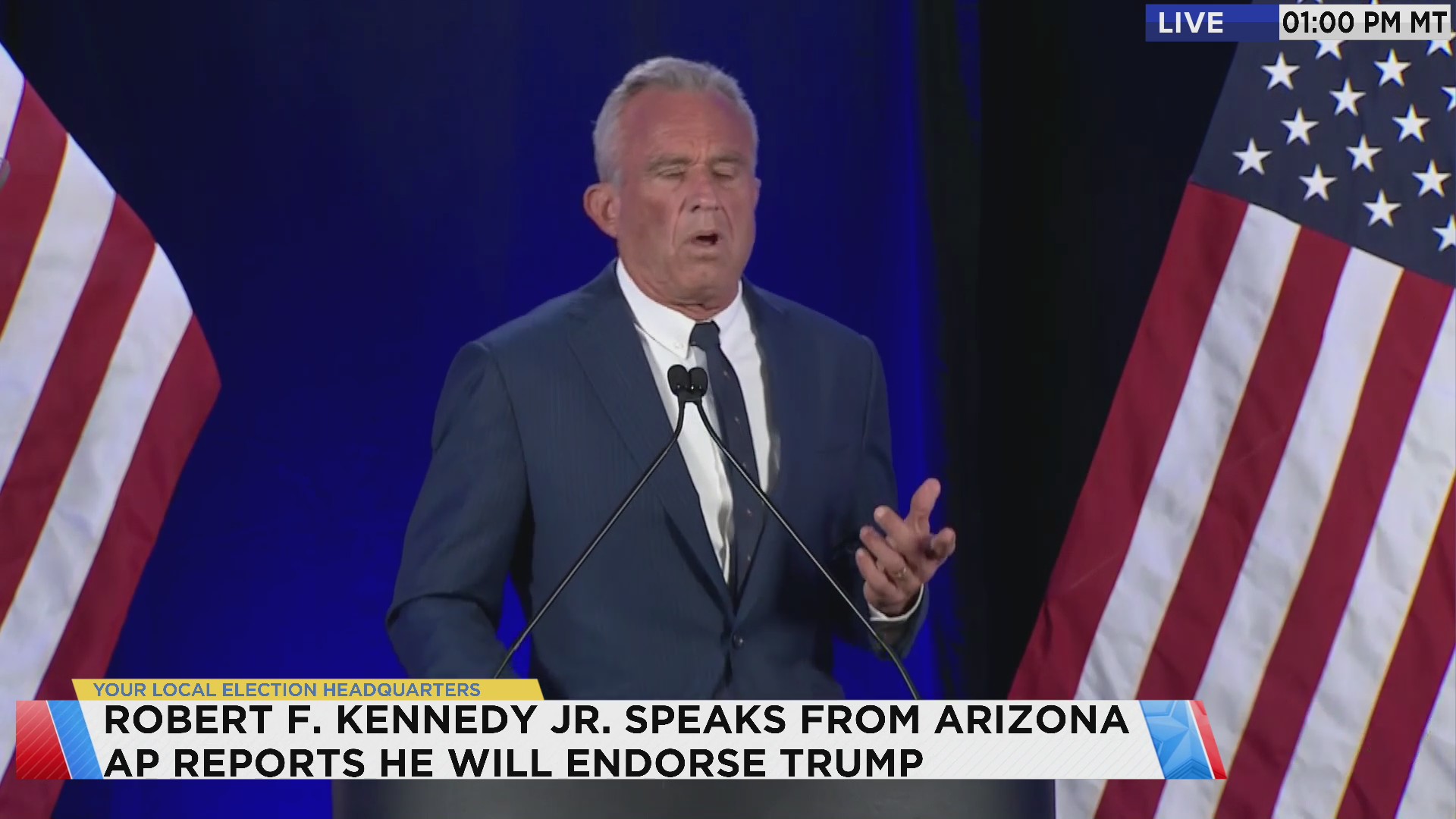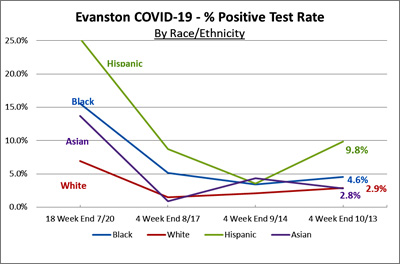Trump Officials Push Back Against RFK Jr.'s Pesticide Criticism

Table of Contents
Key Arguments from Trump Officials
Trump administration officials have countered Kennedy's pesticide criticism on several key fronts, emphasizing the economic benefits of pesticide use and the scientific backing for current regulations.
Emphasis on Economic Benefits of Pesticide Use
A central argument from Trump officials revolves around the significant economic impact of pesticide use in the United States. The agricultural sector relies heavily on pesticides to ensure high crop yields and maintain affordable food prices. Restricting or banning certain pesticides could have devastating consequences.
- Increased crop yields: Pesticides protect crops from pests and diseases, leading to significantly higher yields per acre.
- Reduced food prices: Increased production efficiency, thanks to pesticide use, translates to lower food prices for consumers.
- Job creation in the agricultural industry: The agricultural sector, including pesticide production and application, employs millions of Americans. Stricter regulations could lead to job losses.
However, critics counter that these economic benefits need to be weighed against the potential long-term health and environmental costs associated with pesticide use. A transition to more sustainable agricultural practices, while potentially initially more expensive, could offer long-term economic advantages by reducing healthcare costs and environmental remediation efforts. This is a point frequently overlooked in the economic impact analysis of pesticide regulation.
Scientific Support for Regulated Pesticide Use
Trump officials point to the rigorous scientific review process undertaken by regulatory bodies like the Environmental Protection Agency (EPA) before pesticides are approved for use. They emphasize that the current regulations are based on extensive scientific research and risk assessments.
- EPA regulations: The EPA employs a multi-stage process to evaluate the safety and efficacy of pesticides, considering potential risks to human health and the environment.
- Scientific studies: Numerous studies cited by the EPA and other agencies support the claim that approved pesticides, when used according to label instructions, pose minimal risks to human health.
- Risk assessment: The EPA utilizes sophisticated risk assessment models to determine acceptable levels of pesticide residues in food and the environment.
However, concerns remain regarding potential biases in these studies, with critics arguing that industry funding and influence may skew research results. Furthermore, the long-term effects of pesticide exposure are still not fully understood, and there's ongoing debate on the adequacy of current testing methodologies for assessing chronic health impacts.
Concerns Regarding Overly Restrictive Regulations
Trump officials express concern that overly restrictive pesticide regulations could lead to unintended consequences, impacting food security and potentially harming small farmers disproportionately.
- Impact on food supply: Reduced pesticide availability could decrease crop yields, leading to potential food shortages or increased food prices.
- Increased food prices: Higher production costs due to stricter regulations would likely be passed on to consumers.
- Potential harm to small farmers: Small farms might lack the resources to adapt to stricter regulations, putting them at a competitive disadvantage.
Counterarguments highlight that less restrictive regulations lead to increased environmental contamination, higher healthcare costs due to pesticide-related illnesses, and long-term environmental damage that outweighs any short-term economic gains. A cost-benefit analysis needs to take these long-term factors into account.
Contrasting Views: RFK Jr.'s Pesticide Criticism Rebuttal
RFK Jr.'s pesticide criticism focuses primarily on the potential health impacts and environmental concerns associated with pesticide exposure.
Focus on Health Impacts and Environmental Concerns
Kennedy and other environmental advocates highlight the potential link between pesticide exposure and a range of adverse health effects, often pointing to studies that show correlations between pesticide exposure and conditions such as:
- Cancer: Several studies have linked certain pesticide exposures to an increased risk of various cancers.
- Developmental disorders: Concerns exist about the impact of pesticide exposure on fetal development and neurological function in children.
- Endocrine disruptors: Many pesticides are suspected endocrine disruptors, potentially interfering with hormone function and reproductive health.
These concerns are often supported by epidemiological studies and laboratory research, though establishing direct causal links remains a challenge in many cases.
Debate on the Adequacy of Current Regulations
A key point of contention is the adequacy of current regulations in protecting public health and the environment. Kennedy and his supporters argue that:
- Regulatory oversight is insufficient: They contend that current regulations are inadequate, with loopholes and inadequate enforcement mechanisms.
- Testing is not rigorous enough: The existing testing protocols may not adequately assess the long-term health and environmental impacts of pesticide use.
- Pesticide residues in food: Concerns are raised about the levels of pesticide residues found in food and their potential impact on human health.
The debate surrounding pesticide regulation continues to be complex, involving scientific uncertainties, economic considerations, and differing values regarding environmental protection and public health.
Conclusion: Trump Officials Push Back Against RFK Jr.'s Pesticide Criticism - A Summary
The clash between Trump officials and RFK Jr. highlights the complex and multifaceted nature of the pesticide regulation debate. While Trump officials emphasize the economic benefits and the scientific support for current regulations, Kennedy’s pesticide criticism centers on potential health risks and the limitations of existing regulatory frameworks. Both sides present compelling arguments, necessitating a thorough consideration of both the economic and health/environmental implications. Understanding the nuances of this ongoing debate requires careful research and critical evaluation of the scientific evidence. We encourage you to delve deeper into the pesticide regulation debate, examining the available data and forming your own informed opinion on this crucial issue.

Featured Posts
-
 Trust In Evanston Tap Water How Gender Race And Past Experiences Shape Perceptions
May 15, 2025
Trust In Evanston Tap Water How Gender Race And Past Experiences Shape Perceptions
May 15, 2025 -
 Joe And Jill Biden On The View Interview Time And How To Watch
May 15, 2025
Joe And Jill Biden On The View Interview Time And How To Watch
May 15, 2025 -
 Maple Leafs Vs Red Wings Prediction Picks And Odds For Tonights Nhl Game
May 15, 2025
Maple Leafs Vs Red Wings Prediction Picks And Odds For Tonights Nhl Game
May 15, 2025 -
 Perviy Raund Pley Off N Kh L Vashington I Monreal Protivostoyanie Ovechkina I Demidova
May 15, 2025
Perviy Raund Pley Off N Kh L Vashington I Monreal Protivostoyanie Ovechkina I Demidova
May 15, 2025 -
 Become An Amazon Locker Host A Step By Step Guide To New Revenue Streams
May 15, 2025
Become An Amazon Locker Host A Step By Step Guide To New Revenue Streams
May 15, 2025
